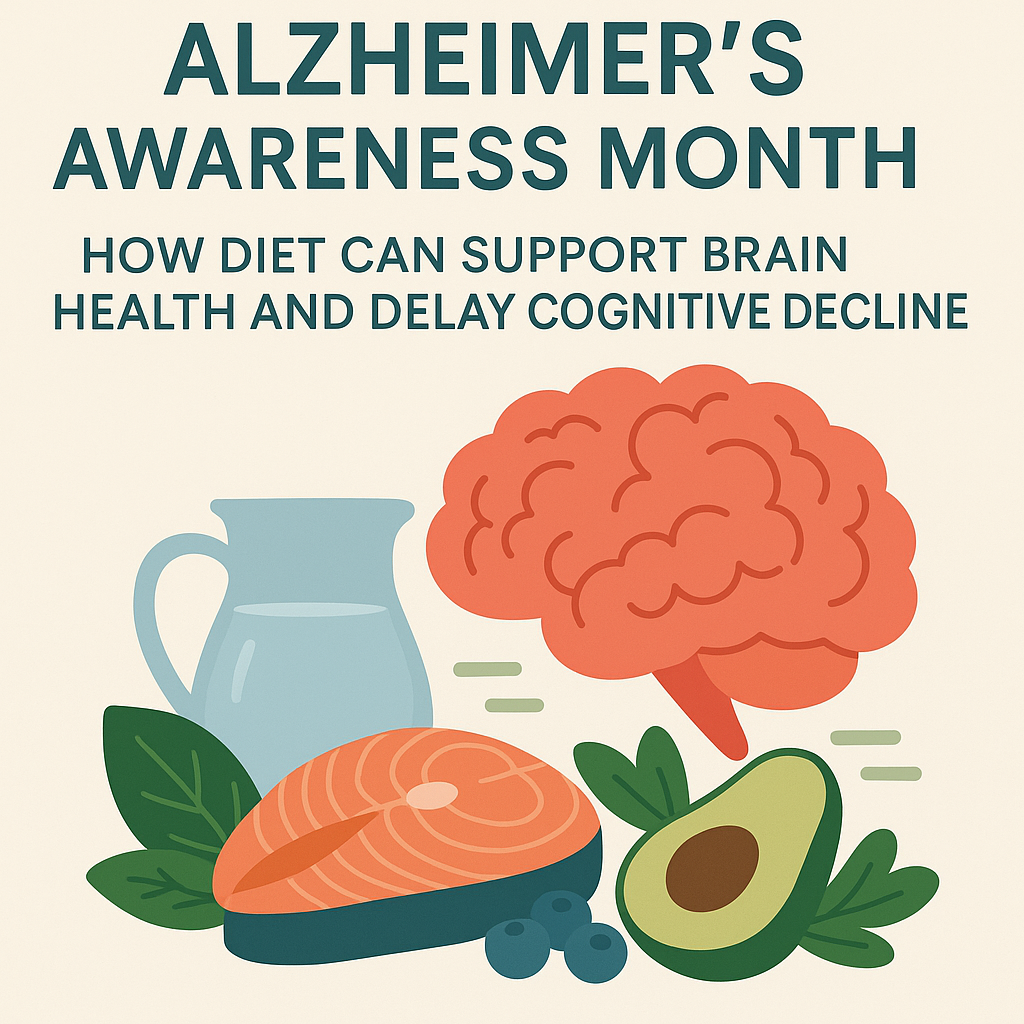June marks Alzheimer’s Awareness Month. Discover how nutrition, lifestyle, and environmental choices can reduce your risk and support brain health naturally.
As June shines a light on Alzheimer’s Awareness Month, it brings with it an urgent reminder: there is still no known cure for this devastating condition. But that doesn’t mean we are powerless. At Blue Zone Nutrition, we believe in prevention through food, lifestyle, and conscious choices—before symptoms ever take hold.
The Role of Diet in Alzheimer’s Prevention
Alzheimer’s disease is a progressive neurodegenerative condition that affects memory, thinking, and behaviour. While genetics do play a role, mounting evidence confirms that our daily choices—especially what we eat—can significantly impact brain health over time.
Food is not just fuel; it’s information for our brain cells.
Why Prevention Matters
Since no medical cure currently exists for Alzheimer’s, the best course of action is to focus on prevention. This involves:
- Eating a brain-supportive, anti-inflammatory diet
- Choosing organic, pesticide-free produce
- Staying hydrated with clean, filtered water
- Engaging in regular mental and physical activity
These are simple, daily habits that support long-term brain resilience.
Blue Zone Wisdom: Eating for Cognitive Health
The world’s Blue Zones—Ikaria (Greece), Okinawa (Japan), Nicoya (Costa Rica), Loma Linda (California), and Sardinia (Italy)—have some of the lowest rates of age-related cognitive decline. Their secrets? A lifestyle that includes whole foods, community connection, and a slower pace of life.
Key nutritional habits from these regions include:
- A mostly plant-based, whole-foods diet
- Limited processed sugar and artificial additives
- High intake of antioxidant-rich fruits and vegetables
- Healthy fats such as olive oil, nuts, and oily fish
- Herbs and spices like turmeric and rosemary that combat inflammation
These foods help protect neurons from oxidative stress, inflammation, and plaque formation in the brain—three major contributors to Alzheimer’s.
What to Avoid
Certain ingredients may accelerate cognitive decline or impair memory over time. These include:
- Processed foods high in trans fats
- Refined sugars and artificial sweeteners
- Pesticide-laden produce and conventional dairy
- Excessive alcohol and smoking
Removing or reducing these can lower inflammation, support the gut-brain axis, and reduce toxic load on the brain.
The Importance of Mental Stimulation and Lifestyle
Cognitive health is not just about what’s on your plate—it’s also about how you live. Studies show that regular movement, learning new skills, social interaction, and mindfulness practices all contribute to improved memory and mental clarity.
- Try this: Replace scrolling with a walk in nature, take up a hobby, or start journaling each morning. It’s all about keeping the brain active and engaged.
Takeaway
Alzheimer’s may be a daunting topic, but it also serves as a powerful motivator. With no cure in sight, prevention truly is our greatest ally. By adopting a nourishing, anti-inflammatory lifestyle and drawing inspiration from the world’s healthiest regions, we can protect our brain health—starting today.
At Blue Zone Nutrition, we’re here to support your journey with clarity, science-backed advice, and a personalised approach to wellbeing.
Written by Milvia Pili (FNTP)
Registered Nutritional Therapist
Blue Zone Nutrition




